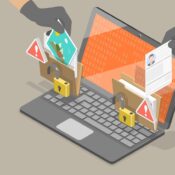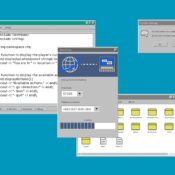Steve Weisman is a lawyer, college professor, author, and one of the country’s leading experts in cybersecurity, identity theft, and scams. See Steve’s other Con Watch articles.
When the CARES Act was passed by Congress at the end of March, many people happily anticipated receiving their much needed payments of as much as $1,200 per person. Few expected that due to a perfect storm of circumstances, not only would some people not receive their CARES Act stimulus payment, but also would also become victims of identity theft.
This is just what happened recently to Jim and Dawn Ackerman of Illinois, who were expecting to receive their $1,200 stimulus checks, but instead learned that their checks had been sent to someone who had stolen their identities, according to CBSN Chicago. Making matters worse, the Ackermans were also victims of income tax identity theft, which occurred when someone filed a phony 2019 federal income tax return in their name before the Ackermans filed theirs. The Ackermans found out about the theft when the IRS notified them that someone had already filed their 2019 federal income tax return, and that they would not be receiving their income tax refund until the matter had been investigated.
Unfortunately, it currently takes the IRS an average of 166 days to complete income tax identity investigations; during the Coronavirus pandemic, it can be expected that this time will lengthen.
Stimulus payments under the CARES Act are usually determined by the information contained on your 2019 federal income tax return or, if you have not filed a 2019 income tax return yet, by your 2018 income tax return. And with the filing deadline extended to July 15, many people have not been in a rush to send in their 2019 returns. According to the IRS, as of April 17 the total income tax returns filed were down by 15.5 percent compared to last year. With the delay, income tax identity thieves will be filing phony 2019 income tax returns in larger numbers this year before their victims file their legitimate returns. This will enable the thieves to also direct the CARES Act stimulus payments of their victims to the criminals’ bank accounts. People who have delayed filing their 2019 income tax returns may be getting a rude awakening.
Things may look even more grim if you filed your return by mail instead of electronically. In April, the IRS announced it was not currently processing paper income tax returns. This leaves identity thieves with a greater opportunity to file an electronic income tax return in your name, which will be processed before your paper income tax return. They can then easily steal your CARES Act payment.
What should you do? If you have already filed your 2019 income tax return electronically and provided your bank account number and bank routing number with your return, you should be fine. If you filed your 2019 income tax return electronically, but didn’t provide the IRS with your bank account information, you can go to the IRS’s Get My Payment tool and provide a bank account to which your CARES Act stimulus check can be sent.
Unfortunately, some people are finding that the Get My Payment tool does not allow them to provide this information. In most instances this is due to security issues with the IRS not being able to verify your Social Security number, address, or other personal information. The IRS updates the Get My Payment tool each day with new information, so you can try to provide your banking information again the next day, but there is no guarantee that you will be successful. In no event should you file a second income tax return with bank account information.
If you have not yet filed your 2019 federal income tax return, you should do so as soon as possible both to prevent income tax and stimulus check identity theft. Filing early is always the best defense against income tax identity theft. It is important to remember that when you do file your 2019 federal income tax return, you should do so electronically because we have no idea when the IRS will start processing paper income tax returns again.
Featured image: Shutterstock
Become a Saturday Evening Post member and enjoy unlimited access. Subscribe now



